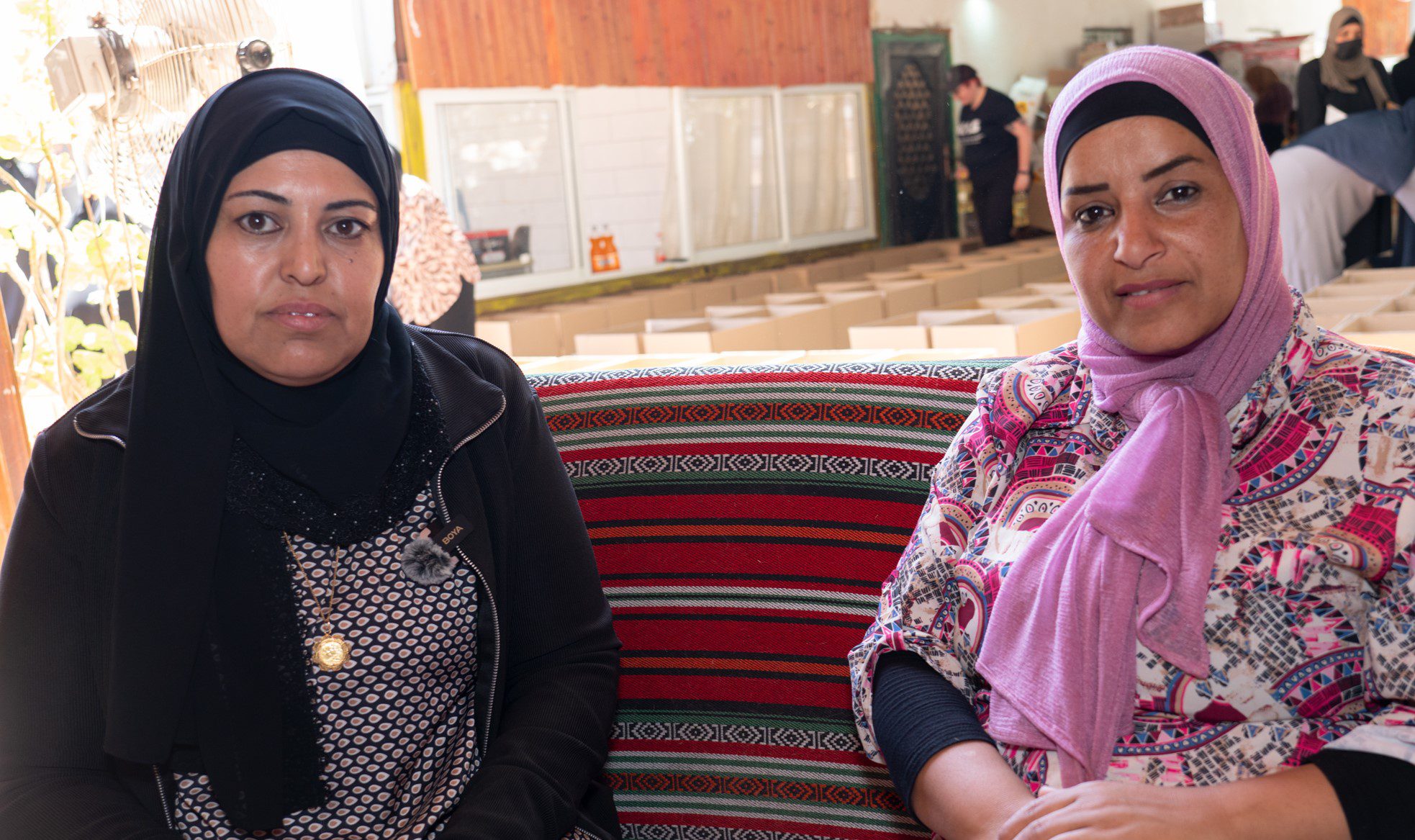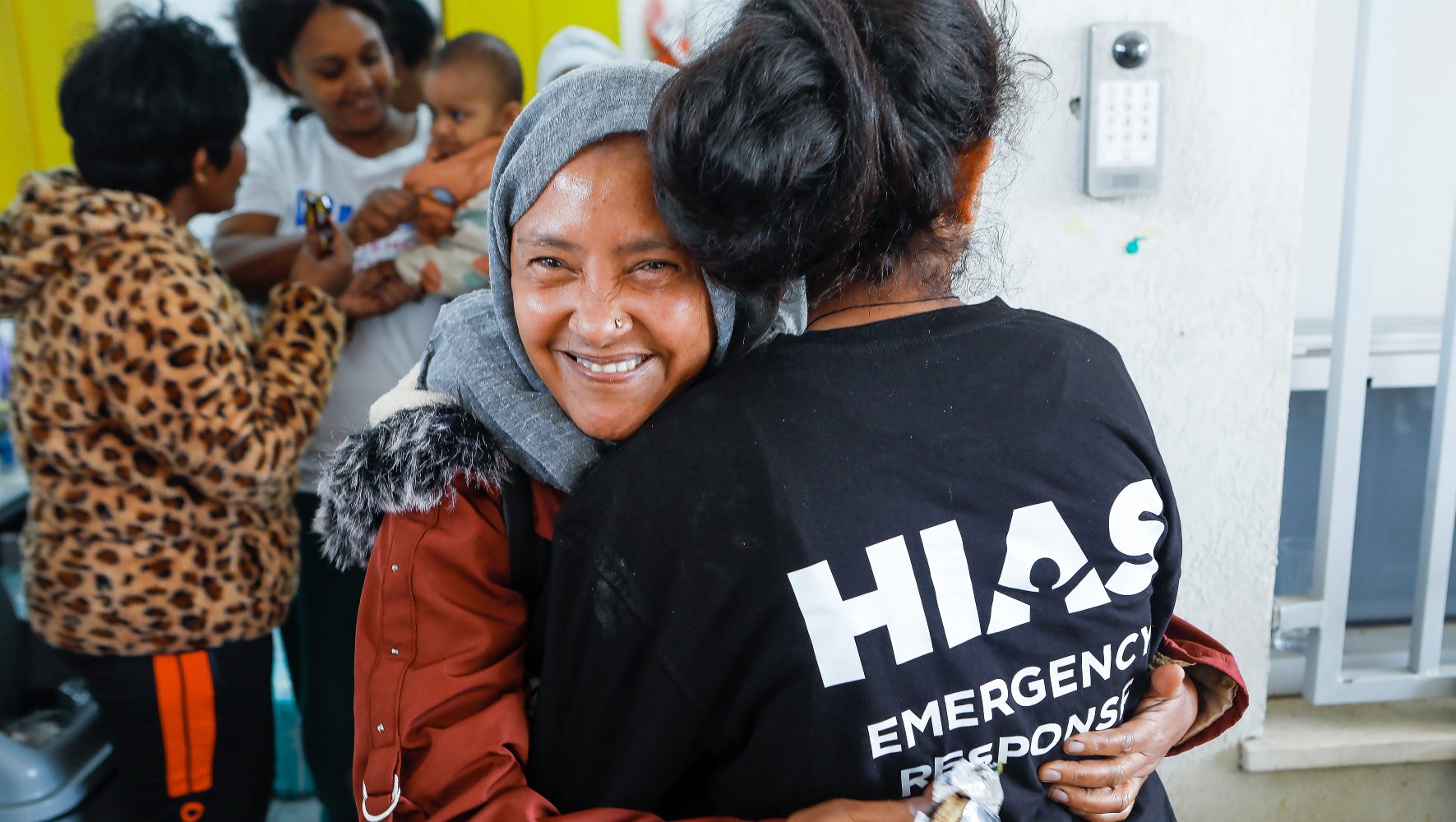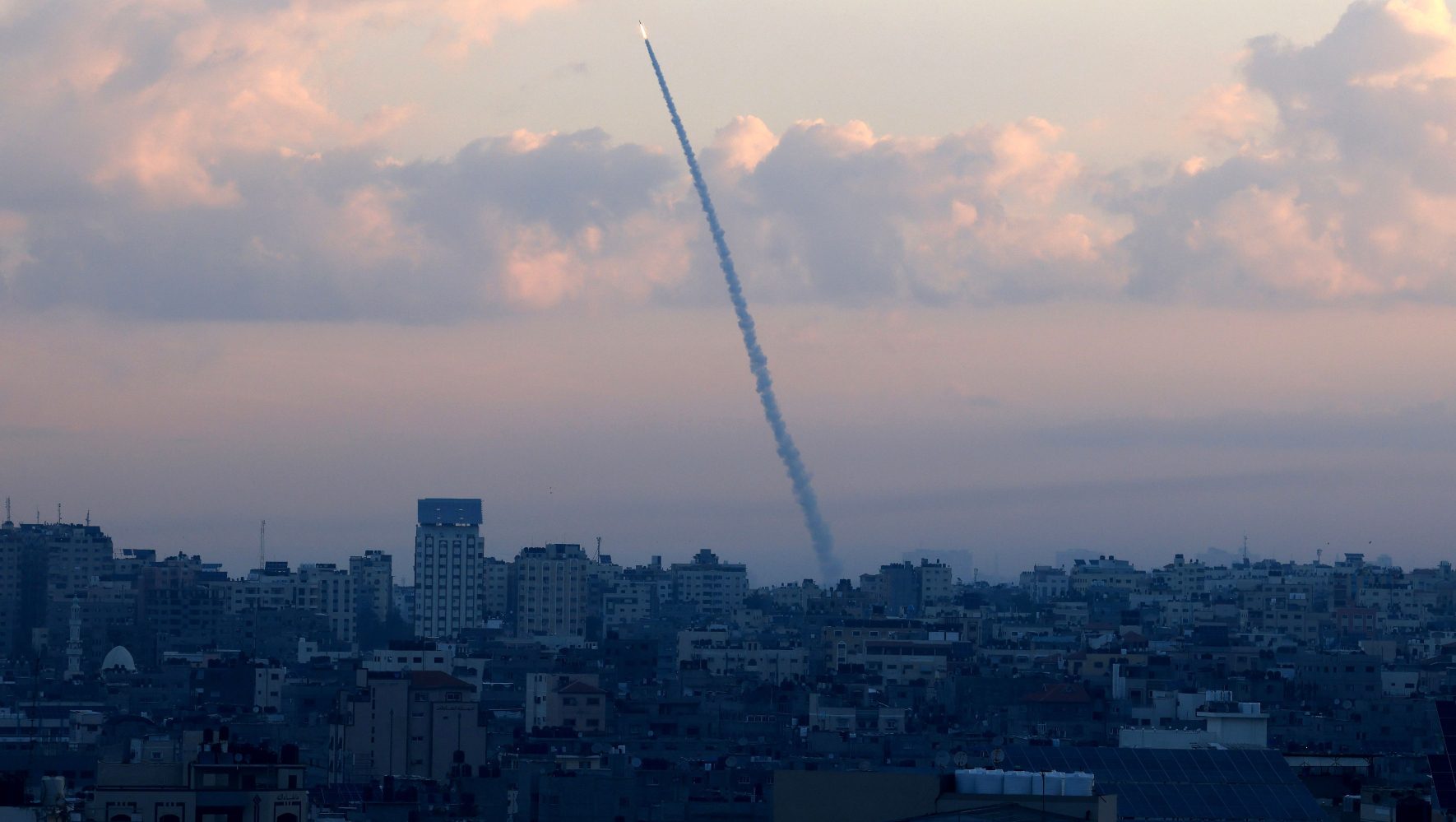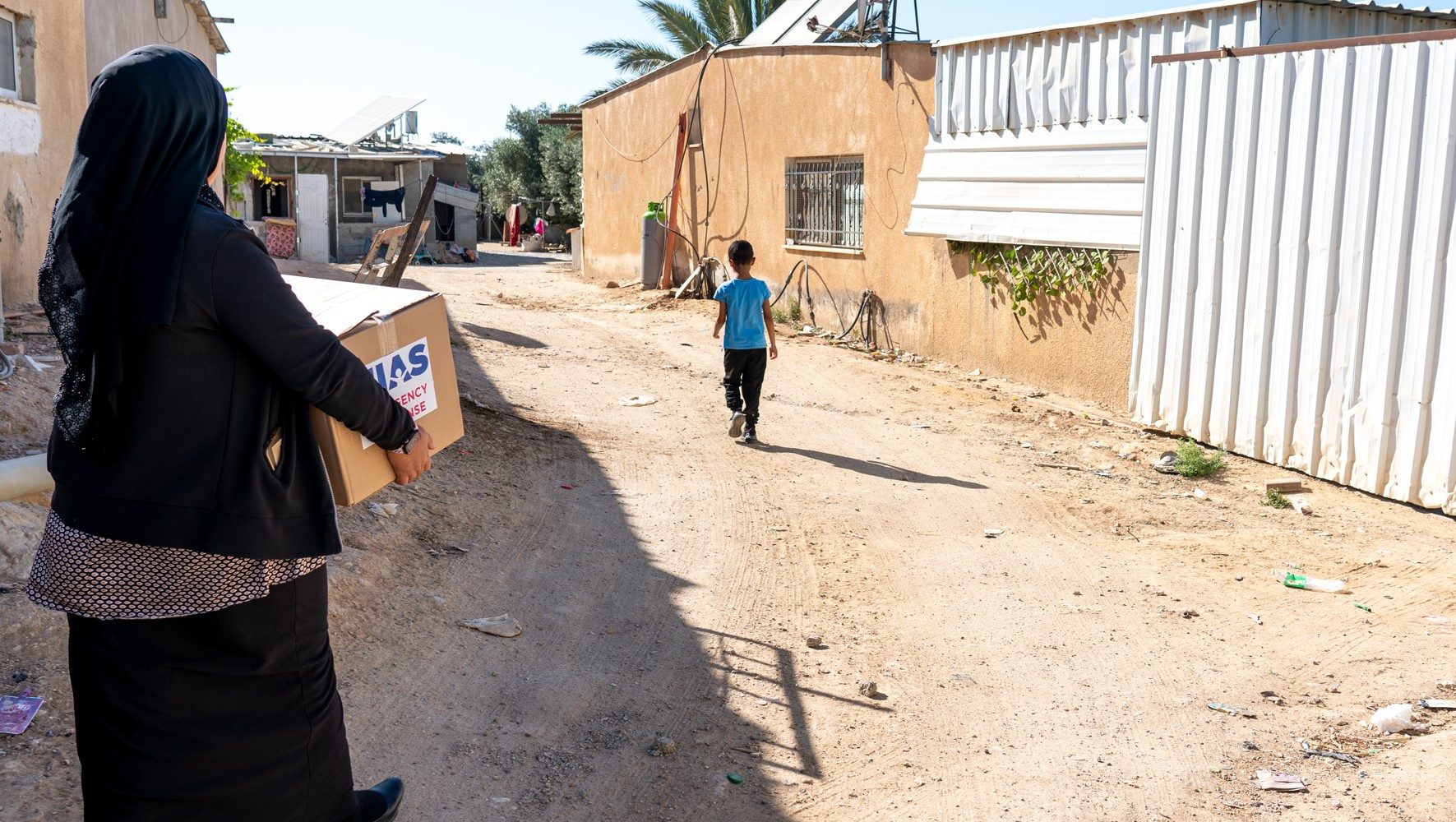Let All Who Are Hungry Come and Eat
May 3, 2024
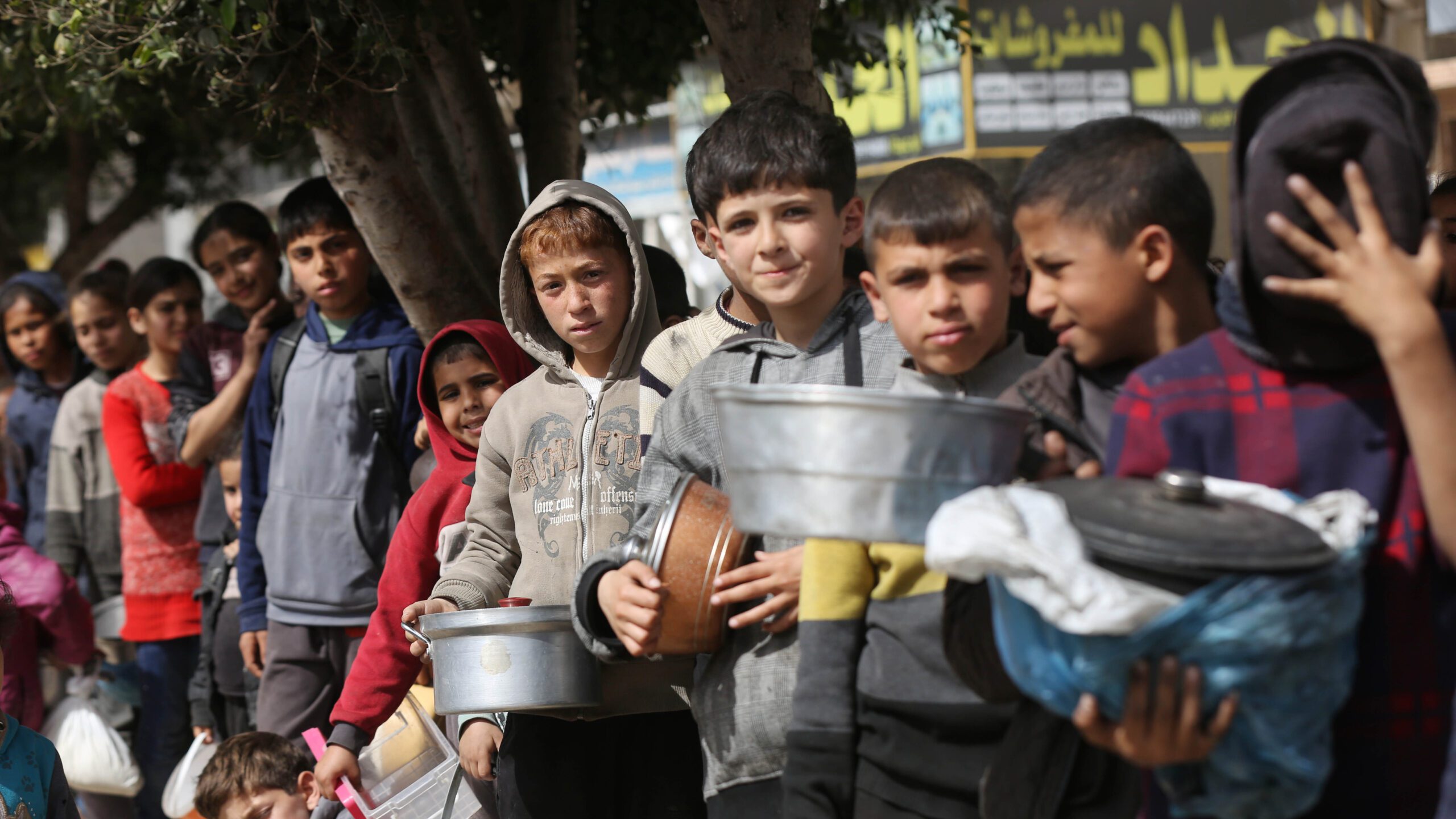
Palestinians queue for hours to receive food distributed by charitable organizations, in Deir Balah, Gaza on March 1, 2024. (Ashraf Amra/Anadolu via Getty Images)
Devastating global events hung over our seder tables like a dark cloud last week. On a holiday meant to recount liberation from persecution and suffering, many of us felt the weight of 133 hostages in continued captivity, the 120,000 people in Israel who are still displaced, and the hundreds of thousands of Palestinians in Gaza living in fear and deprivation. A holiday celebrating freedom felt anything but free.
Jews eat matzah on Passover to remember both our persecution and our liberation. At the seder, we hold it up to proclaim: “Kol dichfin yeitei v’yeichol.” All who are hungry, let them come and eat. Rabbi Jonathan Sacks z’’l reminds us that “what transforms the bread of oppression into the bread of liberation is our willingness to share it with others. Jewish tradition takes, quite literally, the notion that when others suffer, we are not yet fully free ourselves. It reminds us that we must not stay silent, especially in this moment of such profound suffering.
As a Jewish humanitarian organization, HIAS is committed to upholding both humanitarian principles and the Torah’s exhortation that each human life is sacred and that every human being is entitled to dignity. In January, we called for urgent political solutions to the conflict so that not one more person would “experience the trauma of violence and displacement, of families lost and torn apart, of hunger.” As the situation continued to worsen, in March, we called on the international community to do all it could to avert a famine, arguing that “our tradition dictates that our conscience cannot be selective — even and especially in war.” In the weeks since, USAID Administrator Ambassador Samantha Power confirmed that the U.S. government believes that famine is already occurring in parts of Gaza.
Related News
Jewish Values Demand the World Averts a Famine
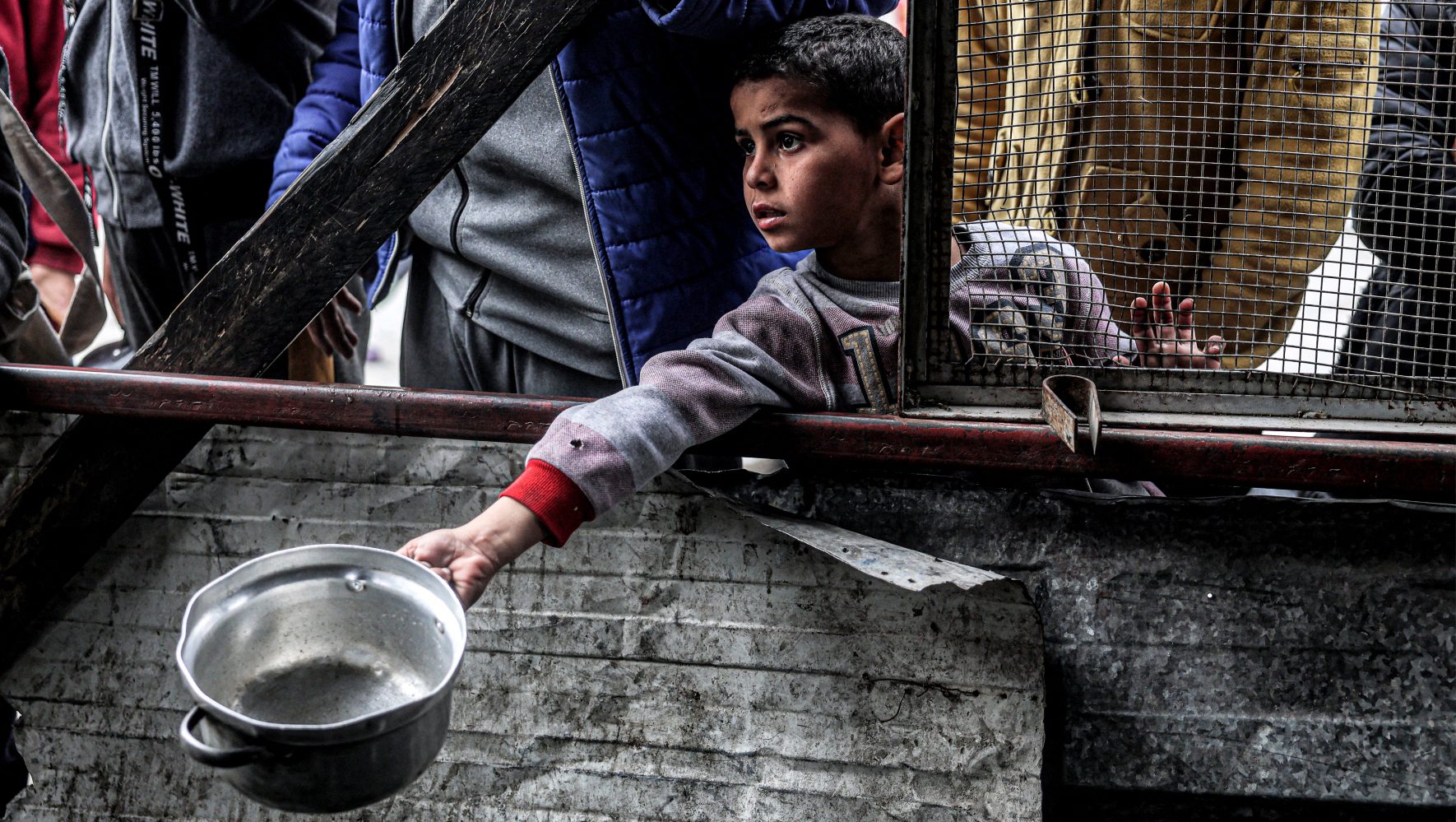
The U.S. government has worked to ensure a significant increase in aid trucks into Gaza, but the aid being allowed to enter falls far short of the growing needs on the ground. At the same time, Israel is poised to launch an offensive on Rafah in southern Gaza, where an estimated 1.3 million forcibly displaced people are currently sheltering in overcrowded, unsanitary conditions without sufficient food, water, or medicine.
For months, the U.S. and the international community have been warning of dire humanitarian consequences if this attack goes ahead, urging the Israeli government not to proceed without a plan to ensure the safety of civilians. These concerns have been echoed by Israeli political leaders, rabbis, aid organizations, and the families of hostages who are pleading for the government to prioritize negotiations to release their loved ones from captivity.
These experts agree: Under the current conditions, there does not appear to be a way for the Rafah offensive to occur without leading to more suffering, displacement, and loss of life. Most of the 1.3 million civilians in Rafah have already been displaced multiple times. For many of them — including young people, the elderly, and wounded and disabled people — further displacement is simply not possible. They face enormous risks to their safety should the attack on this densely populated area proceed. Even those who can move will be exposed to massive risks to their health and safety in the process, and it remains unclear to where they may be able to flee.
While there are no easy answers in this complex and fraught time, we are guided by the supreme Jewish — and humanitarian — value of pikuach nefesh: that saving a human life must supersede almost everything else. With two million lives on the line, every government — and each of us — must uphold this value so that people in Gaza can receive the life-saving support they urgently need, the hostages can be immediately and unconditionally released, and civilians in Rafah and across Gaza, including aid workers, medical personnel, and journalists, can be protected from further suffering, displacement, and death.


